Bioinformatics Lecture Series #2 and #3
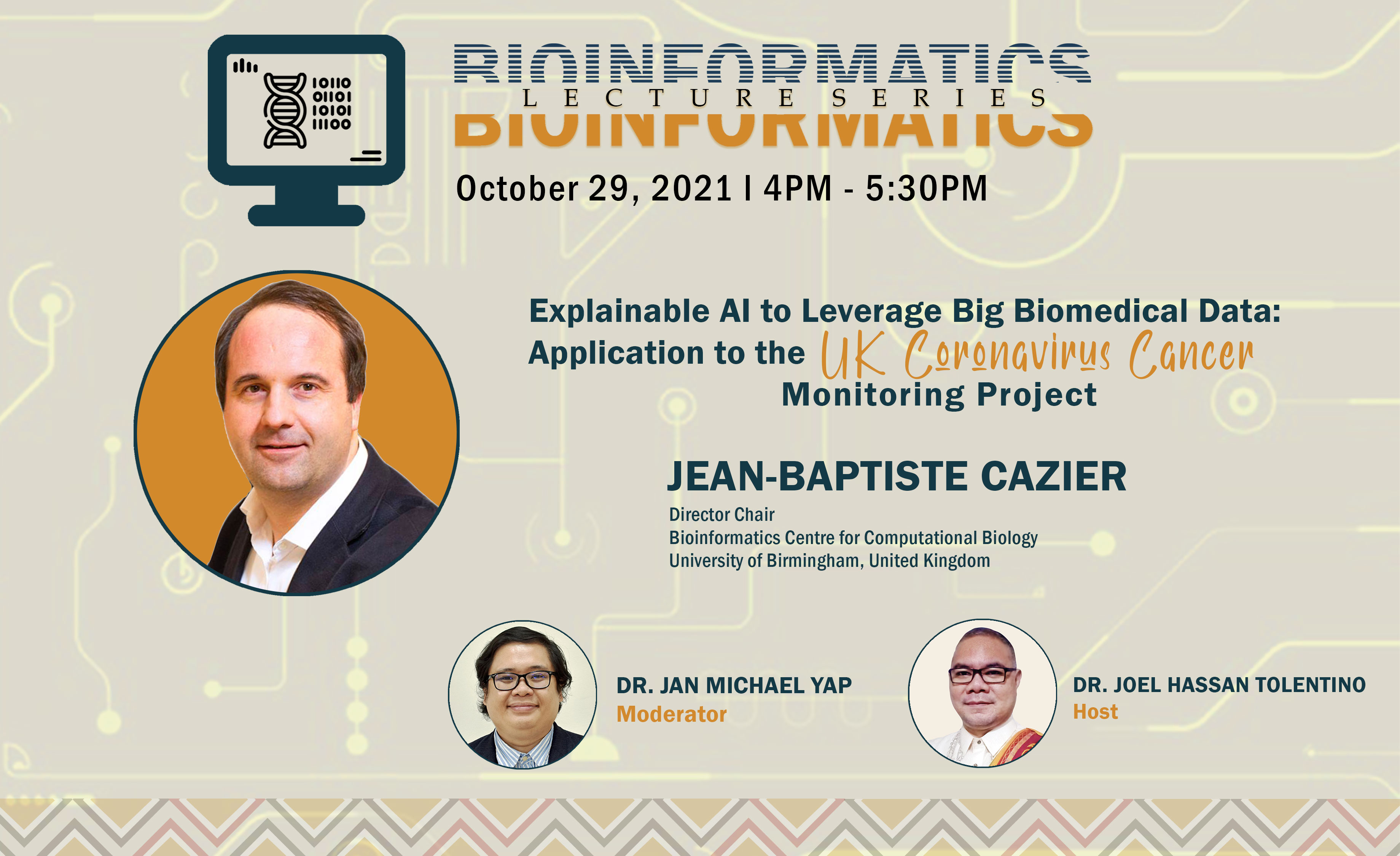
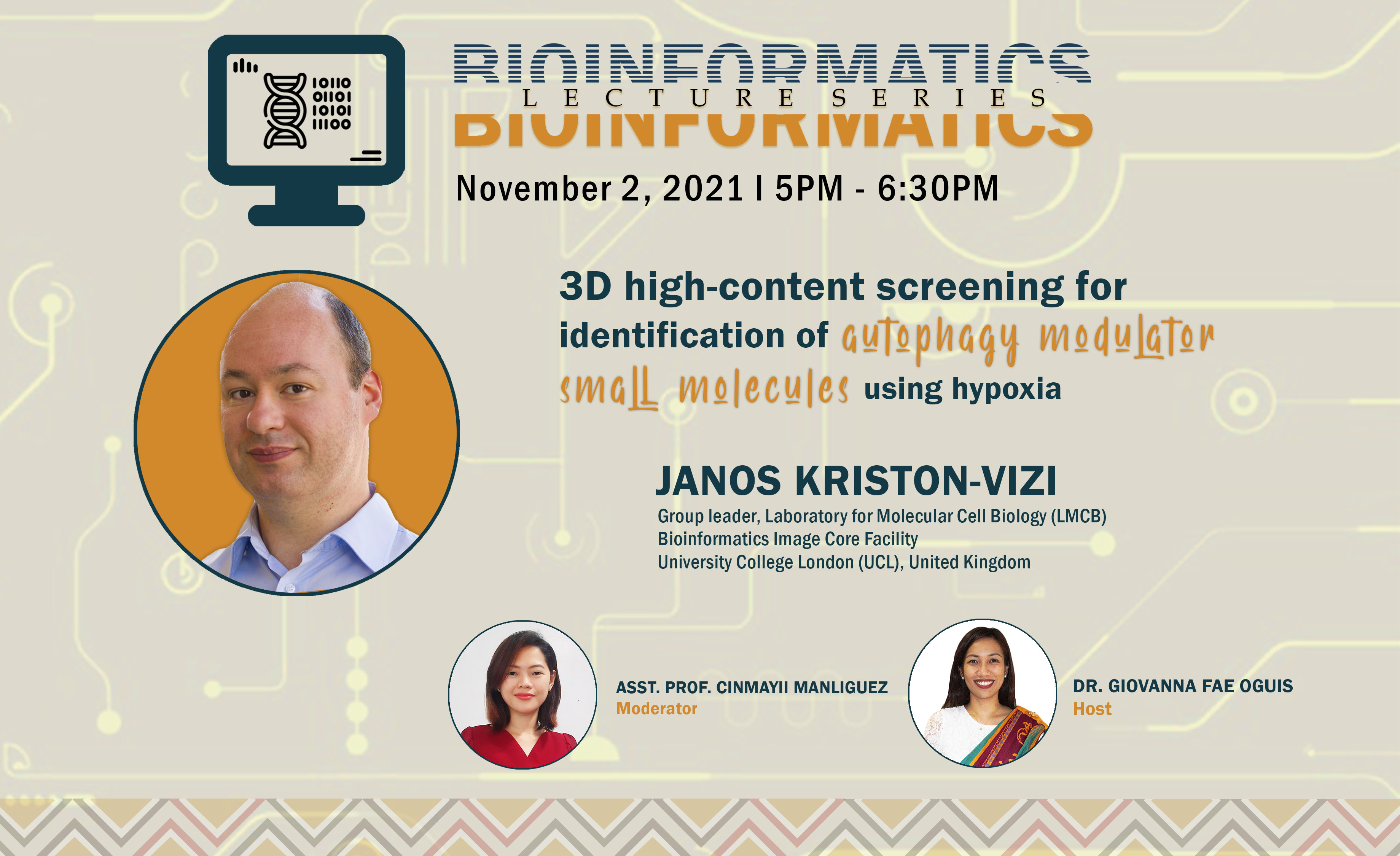
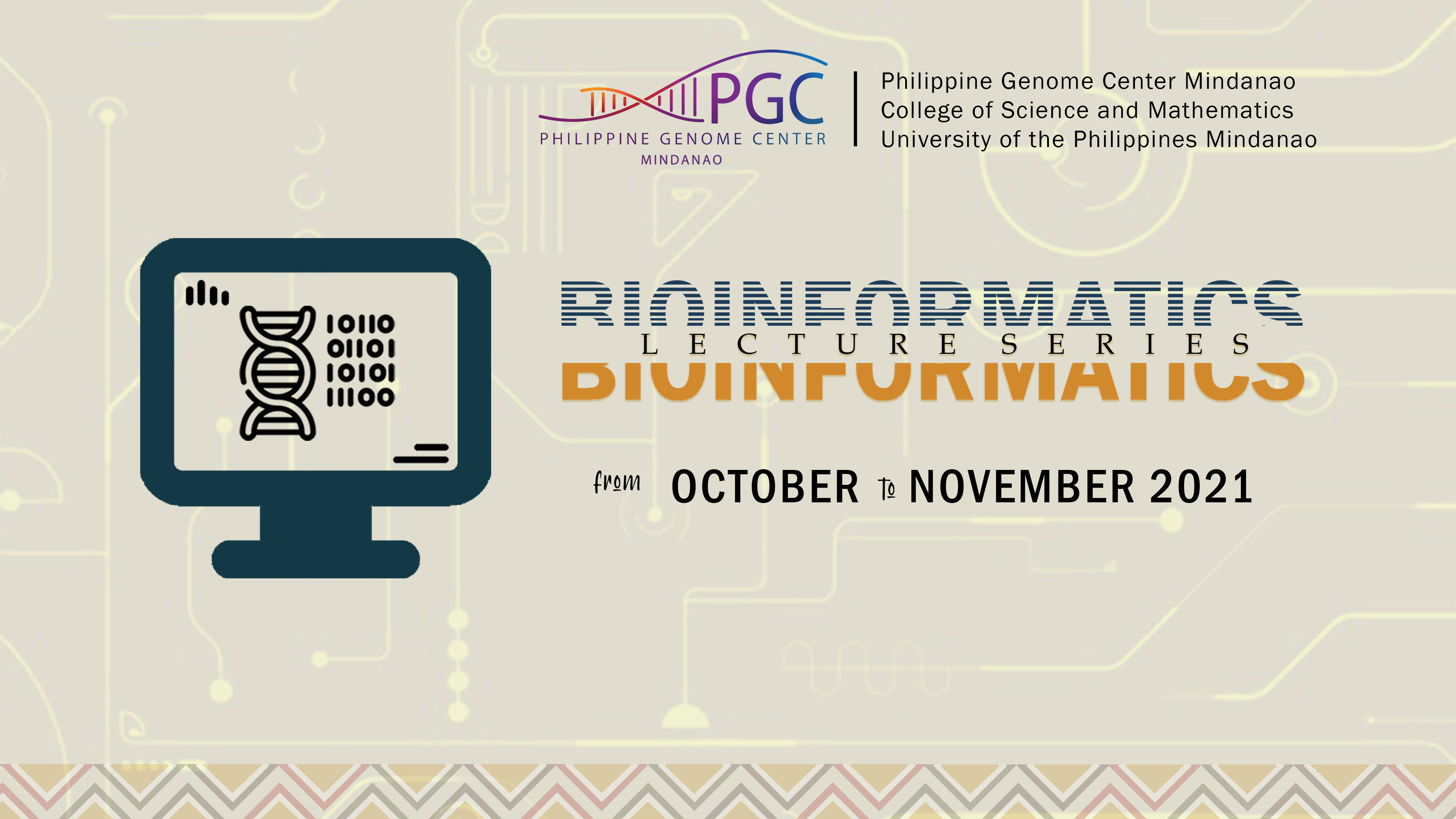



The University of the Philippines Mindanao (UPMin), in collaboration with the London School of Hygiene and Tropical Medicine (LSHTM), UK, has successfully completed the One Health Omics Project, a week-long free online bioinformatics workshop from October 11-16, 2021. Out of 124 applicants, only 40 were shortlisted to participate in the workshop composed of faculty members, clinicians, and researchers from different regions in Mindanao. In the opening ceremony, Dr. Aleyla De Cadiz, Project Leader of One Health Omics, said that the workshop serves to capacitate Filipino researchers in Mindanao on omics technology in the surveillance, management, and control of infections in a One Health setting.
“We want to expose Mindanaoan researchers to bioinformatics tools and techniques which can be helpful in their research focus and future research endeavors in the region,” she said.
Bioinformatics is a combination of biology and information technology that allows researchers to use a computer to further examine and understand the characteristics of an organism or a microbe through its genome, such as the SARS-CoV-2 virus responsible for the COVID-19 disease.
Today, bioinformatics algorithms made it possible to quickly assemble the genome sequence of the coronavirus which helped scientists to quickly develop diagnostic test kits and give an immediate head start in vaccine development.
The bioinformatics workshop was facilitated by Dr. Jody Phelan, Julian Libiseller-Egger, Daniel Ward, Anton Spadar, and Paula Josefina Gómez González, bioinformatics experts from LSHTM, all members of Professor Taane Clark’s team.
Dr. Phelan, one of the lead trainers expressed his willingness to help and assist the participants beyond the workshop activity. He encouraged the young Filipino researchers to keep on doing the materials in their own time. Dr. Phelan also looks forward to conducting face-to-face training soon. “I would love to meet everyone face-to-face so let us hope that the situation improves and that we can travel.”
The workshop proved to be very challenging to the participants given that bioinformatics is a new learning field in health research, but they were grateful to have been introduced to its concepts and applications.
“The workshop gave us the technical experience and knowledge in handling datasets in different omics approaches. This will be very useful to a researcher like me who is interested in doing omics approach studies,” said Vanessa Joy Diamante, a researcher at the Philippine Genome Center (PGC) Mindanao.
Joseph Mari Querequincia, a registered pharmacist and faculty member of San Pedro College Davao, said he was grateful to have been included in this training course.
“The workshop allowed me to warrant a skill for Bioinformatics in which I could utilize for future academic and research undertakings related to pharmacogenomics and drug discovery,” said Querequincia.
Meanwhile, Dr. Jonah Adtoon, an Internal Medicine Specialist at the Department of Health (DOH) XI declared her willingness to be involved in more clinical research projects in the omics field for disease investigation and patient management.
Professor of Genomics and Global Health in LSHTM and the lead United Kingdom (UK) coordinator Prof. Taane Clark said that the skills learned during the workshop will allow the participants to apply big data methods to genomics questions and investigations.
"Bioinformatics and genomics techniques, as well as conducting related molecular investigations, are important skills for the participants to become genomics and genomic epidemiological experts and will contribute to improving the health of the Philippines population. Some of the trainees in our previous workshops are now trainers in bioinformatics, and it is very exciting and personally rewarding to be part of capacity building and strengthening in genomics, and contribute to ongoing Philippines-UK biomedical collaborations," he said.
In her message, PGC Mindanao Program Director Dr. Lyre Anni Murao recalled the first workshop conducted by LSHTM at PGC in Diliman and its influence on the establishment of PGC in Mindanao.
“The workshop played a pivotal role in establishing our facility, because without a background on omics we wouldn’t be able to take PGC Mindanao to where it is right now, so thank you very much for sharing your skills and expertise,” she said.
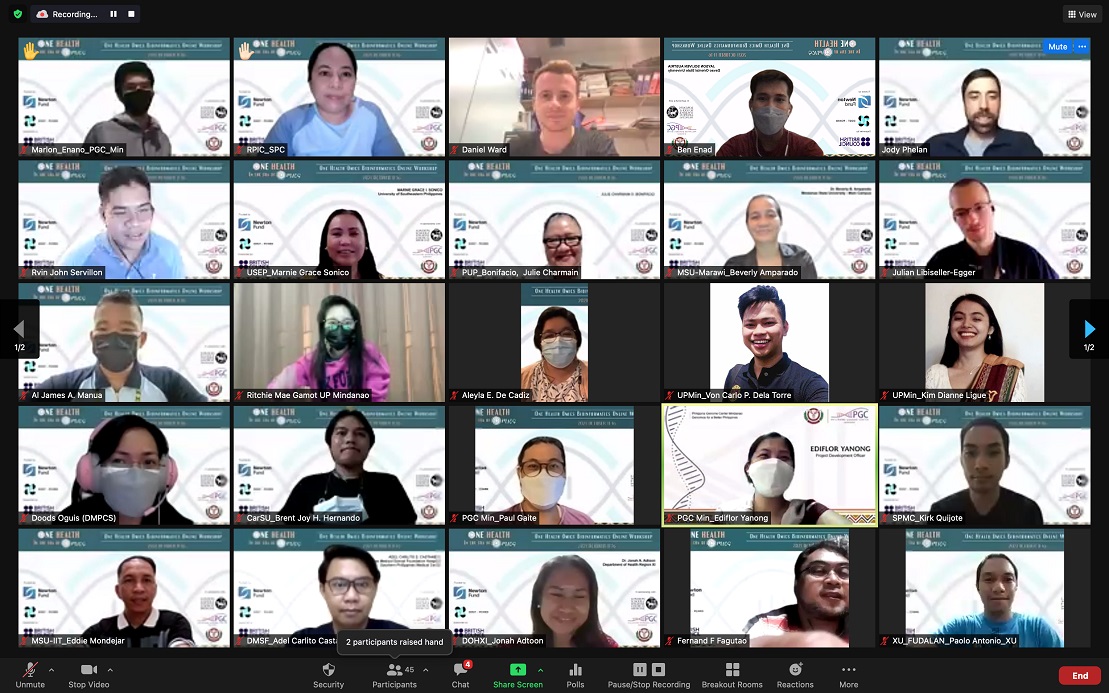 |
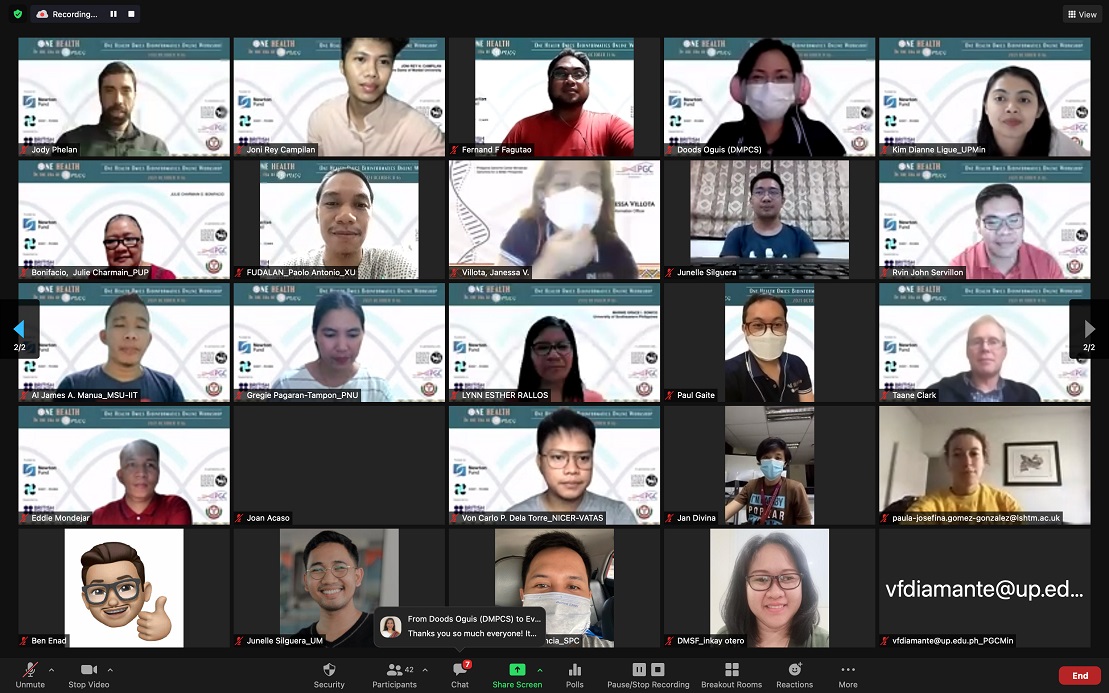 |
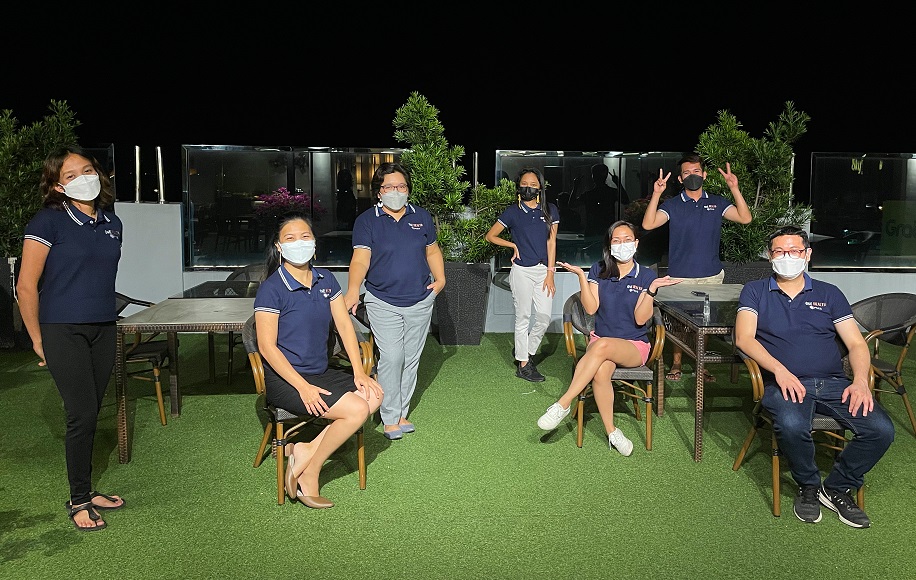 |
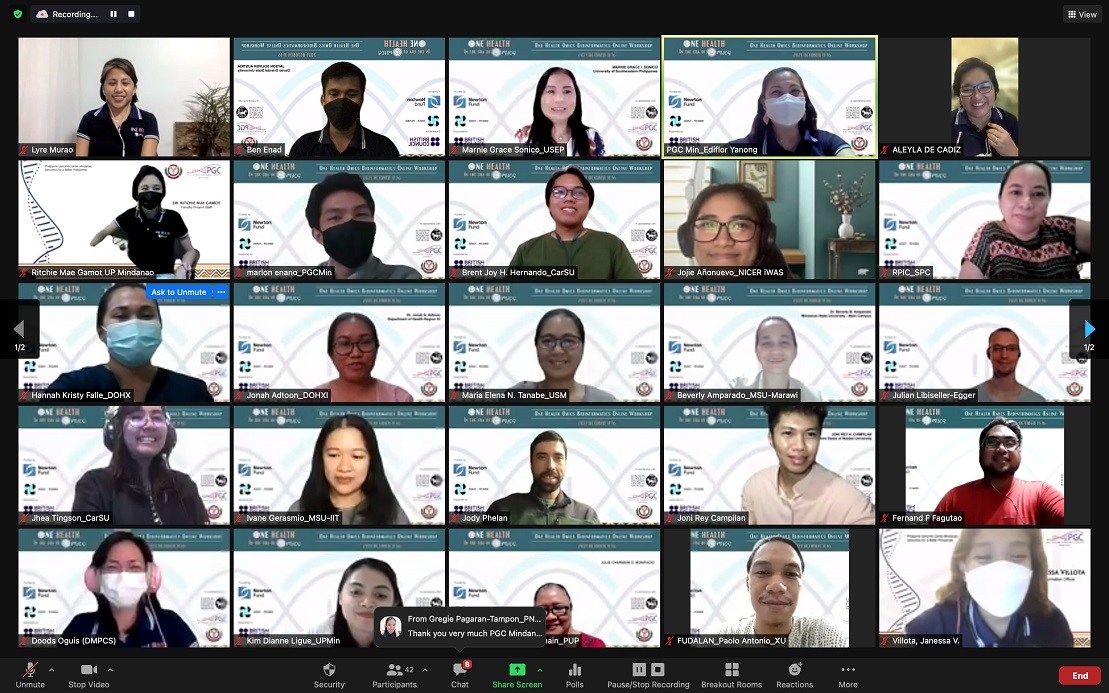 |
The workshop was made possible through the PGC Mindanao team of Dr. Lyre Anni Murao, Dr. Joel Hassan Tolentino, Dr. Ritchie Mae Gamot, Dr. Giovanna Fae Oguis, Ms. Ediflor Yanong, Mr. Jan Divina, Mr. Polo Gaite, Ms. Marian Luayon, Ms. Janessa Villota, and Mr. Ruben Enad, Jr.
The One Health Omics Project was funded by DOST-Newton Agham Researcher Links Workshop grant from the British Council in partnership with London School of Hygiene and Tropical Medicine (LSHTM) and supported by the Department of Science and Technology (DOST) - Philippine Council for Health Research and Development (PCHRD). The workshop is also co-sponsored by the Philippine Genome Center (PGC) Mindanao.
The LSHTM will be having its second run of Online Bioinformatics Workshop on November 22-25, 2021 which will focus on Infectious Diseases. This will be participated by 30 participants from the Philippines and 30 participants from the UK.
# (By JANESSA V.VILLOTA, Information Officer I, Philippine Genome Center Mindanao)
The London School of Hygiene and Tropical Medicine, in collaboration with the University of the Philippines Mindanao, will be conducting a FREE Infectious Diseases 'Omics online short course on Bioinformatics on 22-25 November 2021.
This short online course will further capacitate your skills in Bioinformatics in a ONE HEALTH setting.
If you are interested, the ONE HEALTH Omics project, in partnership with the Philippine Genome Center Mindanao, would like you to cordially invite you to take this survey: https://tinyurl.com/4w2rv4hj
Limited slots and open to participants from all over the Philippines.
Deadline for application is on 21 October 2021.
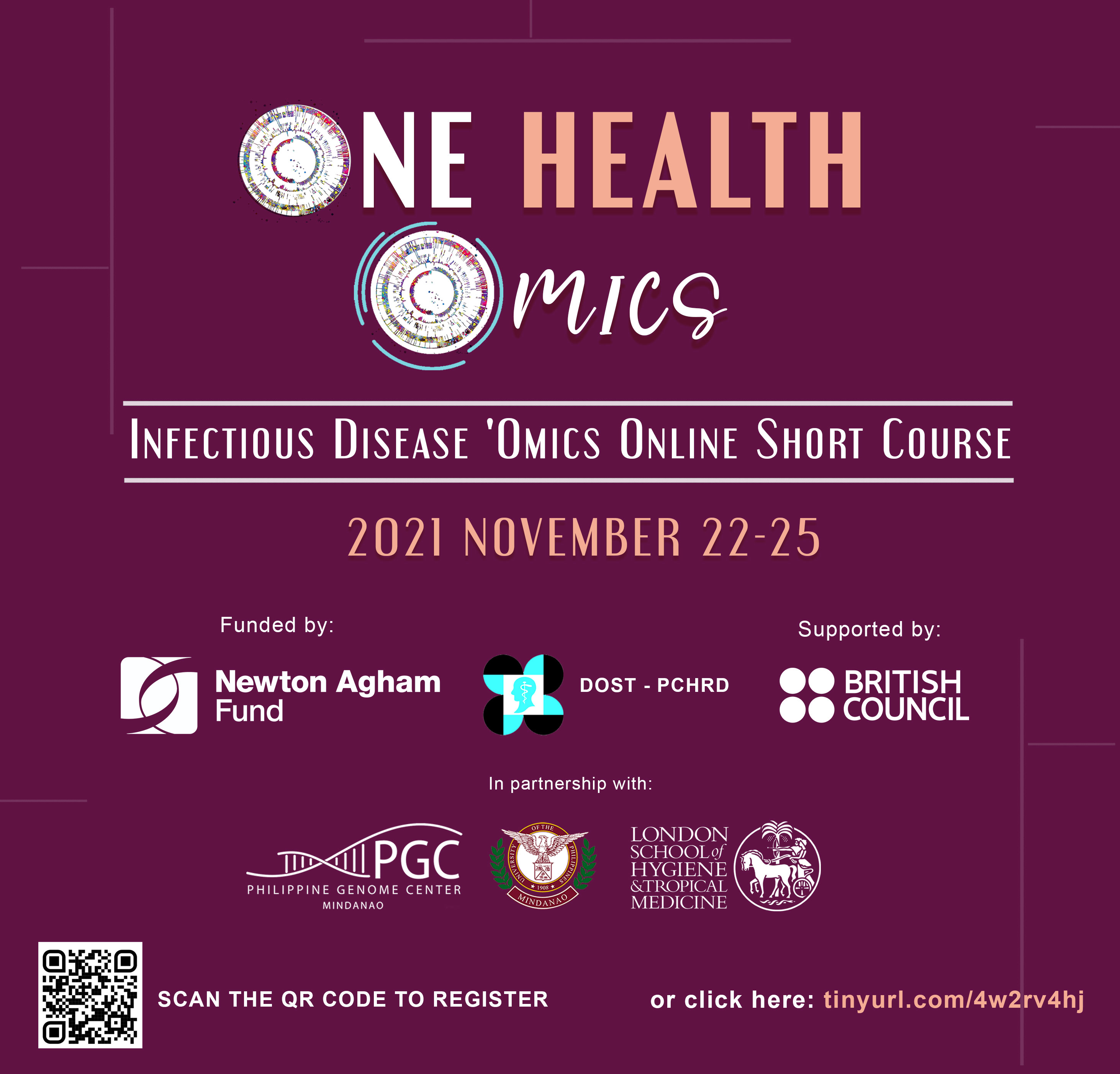

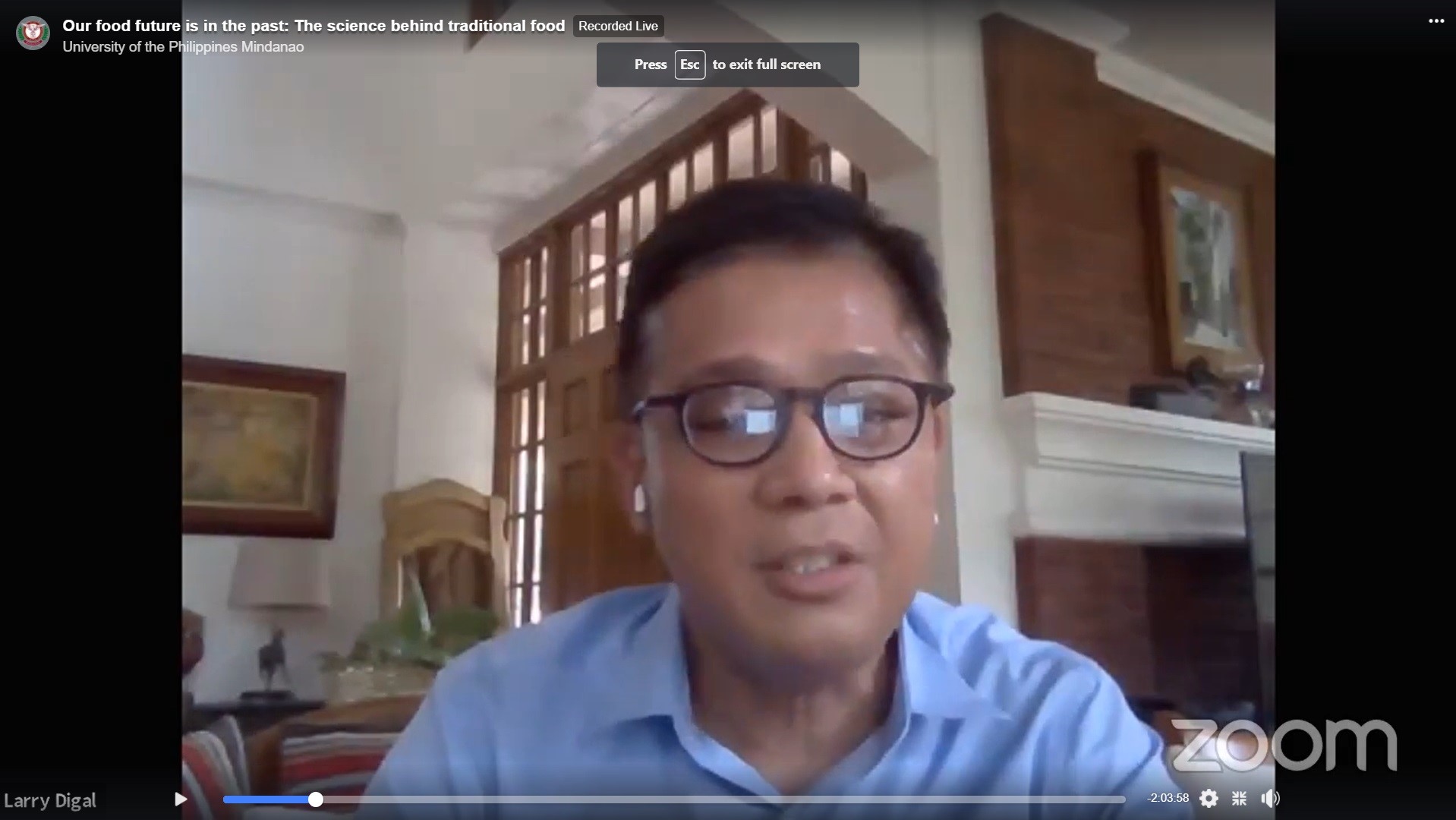 |
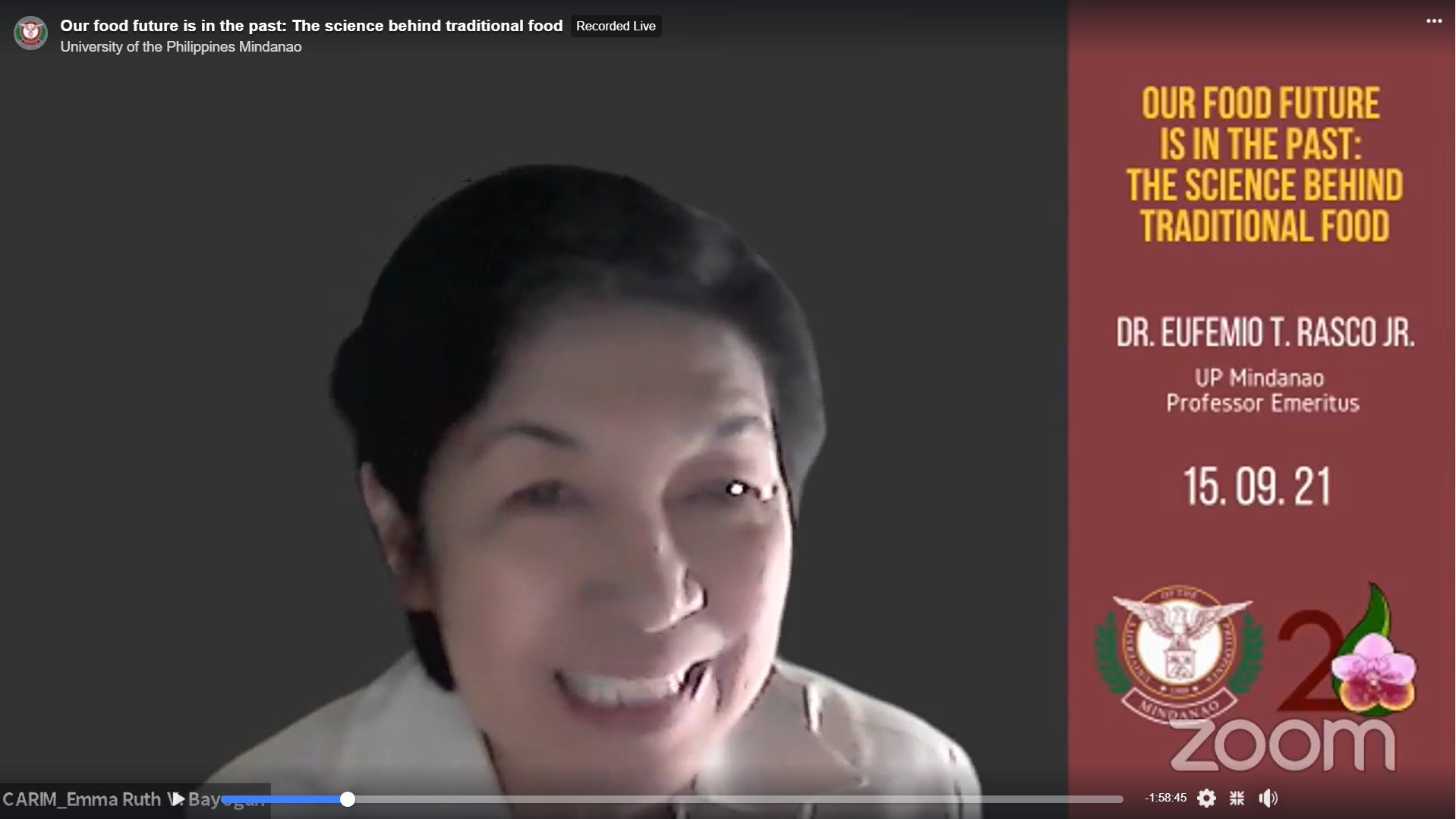 |
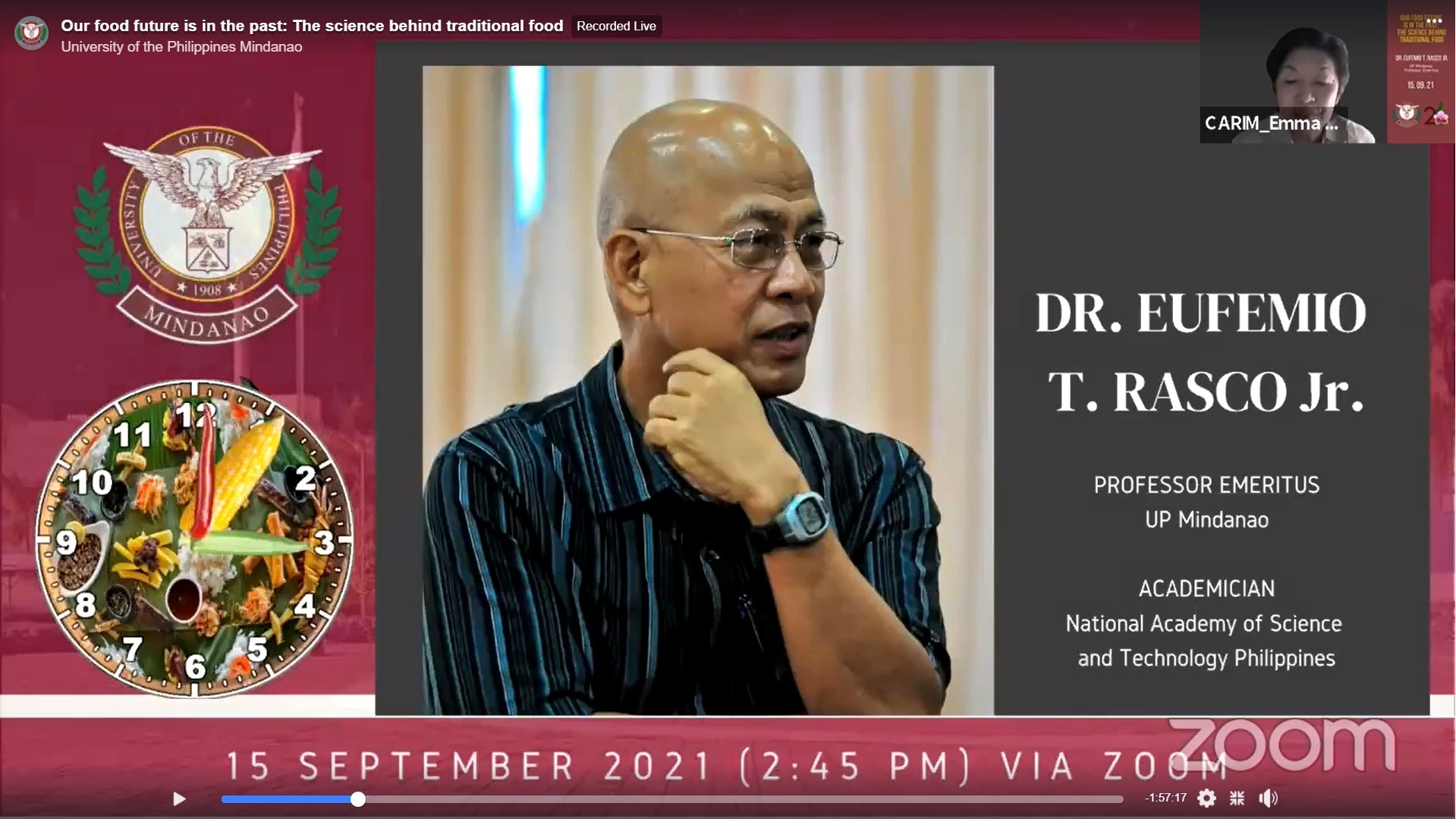 |
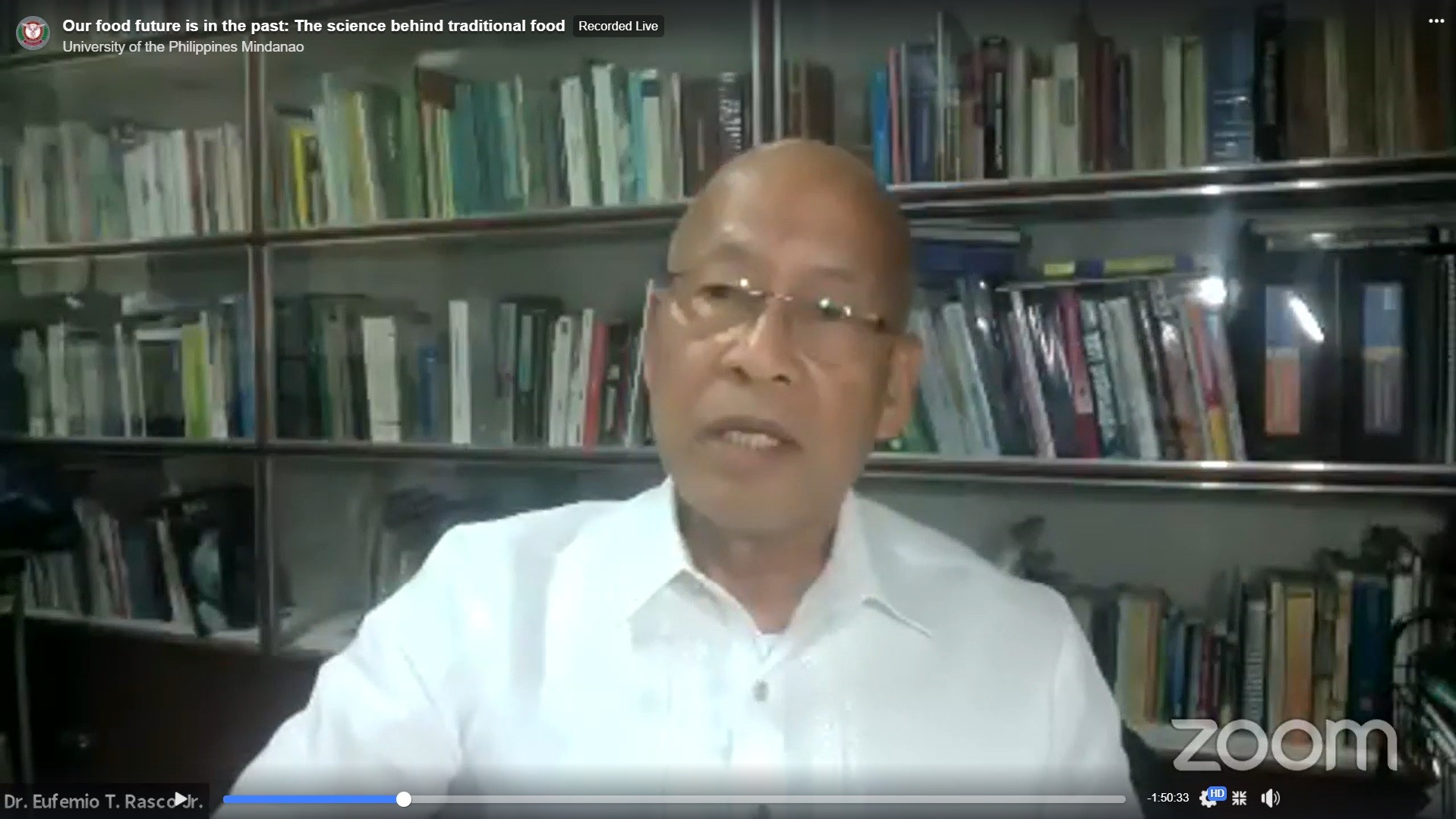 |
From top, left: Chancellor Larry Digal gives Welcome Remarks; Prof. Emma Ruth Bayogan introduces the lecturer; Professor Emeritus Eufemio Rasco Jr.
The University of the Philippines Mindanao’s Center for the Advancement of Research in Mindanao (CARIM) held a virtual lecture by Dr. Eufemio T. Rasco Jr., entitled “Our Food Future is in the Past: The Science Behind Traditional Food”. Dr. Rasco is a National Academy of Science and Technology Academician and the first Professor Emeritus of the University of the Philippines Mindanao.
He started the talk by showing pictures of his yard. The overripe fruits of his santol and mabolo trees were scattered on the ground. He pointed out that these fruits littered his yard, not because of a lack of want on his end to sell them, but of a lack of interest on the consumer’s end to pay well for them. This set up the point of the lecture. It proposed that the current food culture in the Philippines does not value our traditional crops as much as it does those that are marketed by the western nations. It also argued that, comparatively, our local fruits provide more nourishment than some of their foreign counterparts. He brought up a study by Sheng-Feng Hung, Su-Feng Roan, Tsu-Liang Chang, Hen-Biau King, and Iou-Zen Chen entitled “Analysis of aroma compounds and nutrient contents of mabolo (Diospyros blancoi A. DC.), an ethnobotanical fruit of Austronesian Taiwan'' published in the Journal of Food and Drug Analysis last 2016. The study compared the mabolo fruit to persimmons (PCA and PCNA strains) and apples (red delicious and fuji cultivars). The study found that the mabolo fruit provides more nutritional value.
Dr. Rasco presented three key points during his lecture: (1) the western fast food diet worsens the health of the public and the generations that will come after them as the diet contributes to lifestyle diseases due to its high fat and sugar content, (2) traditional food diet helps in aiding the fight against metabolic diseases, even including COVID-19, and (3) traditional food consumption benefits and aids local rural communities that are pushed out of the market by foreign food industries.
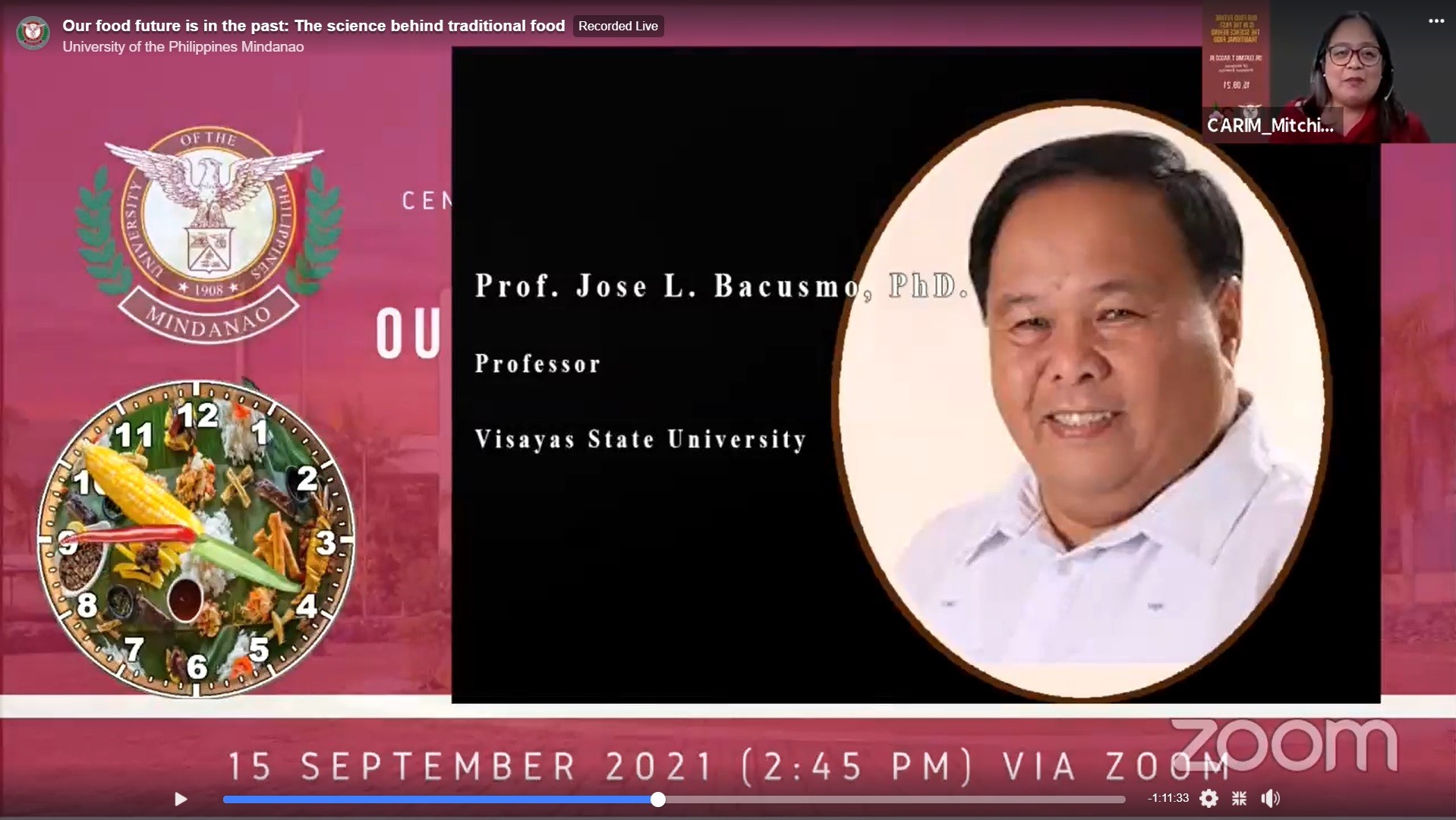 |
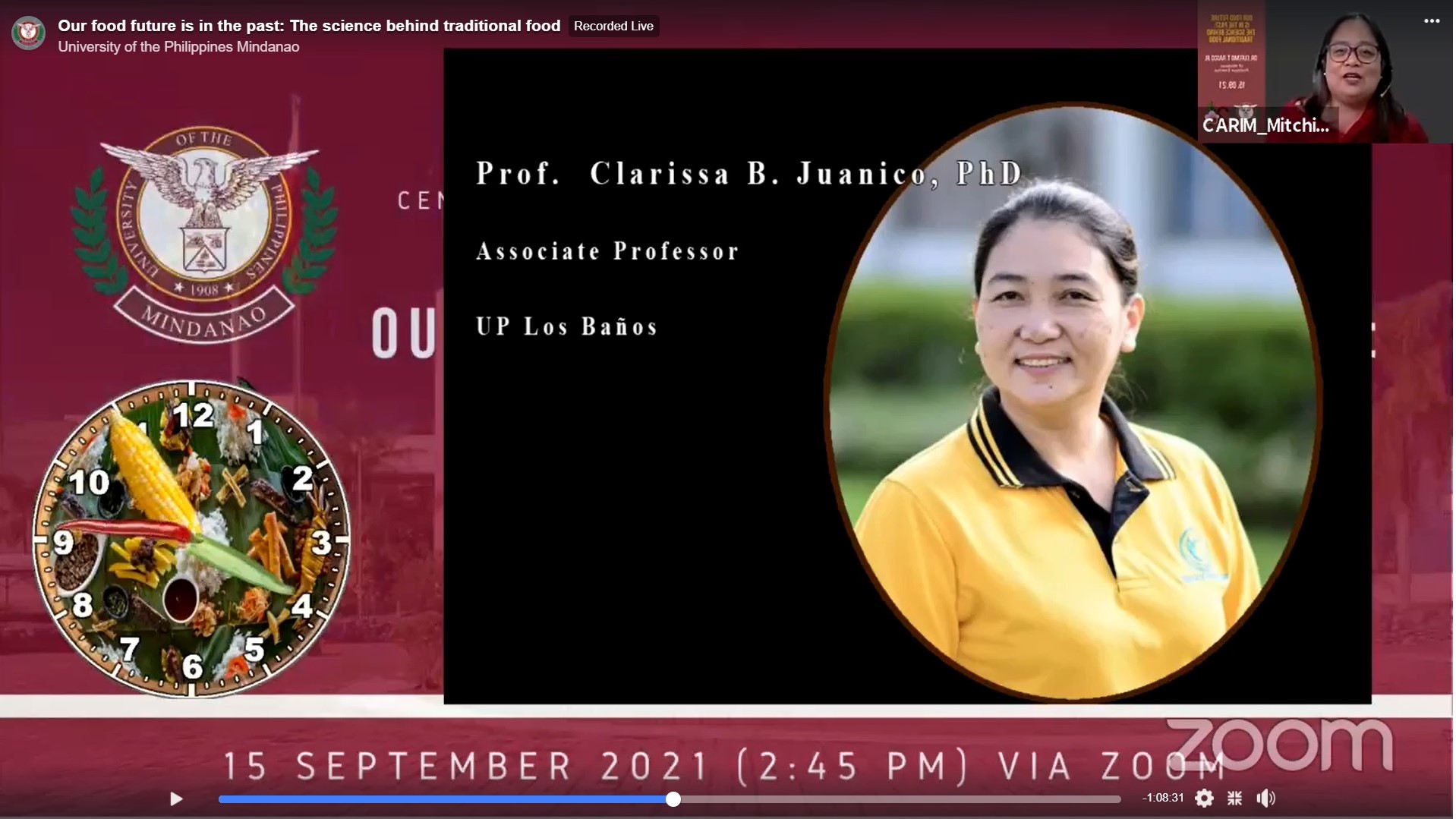 |
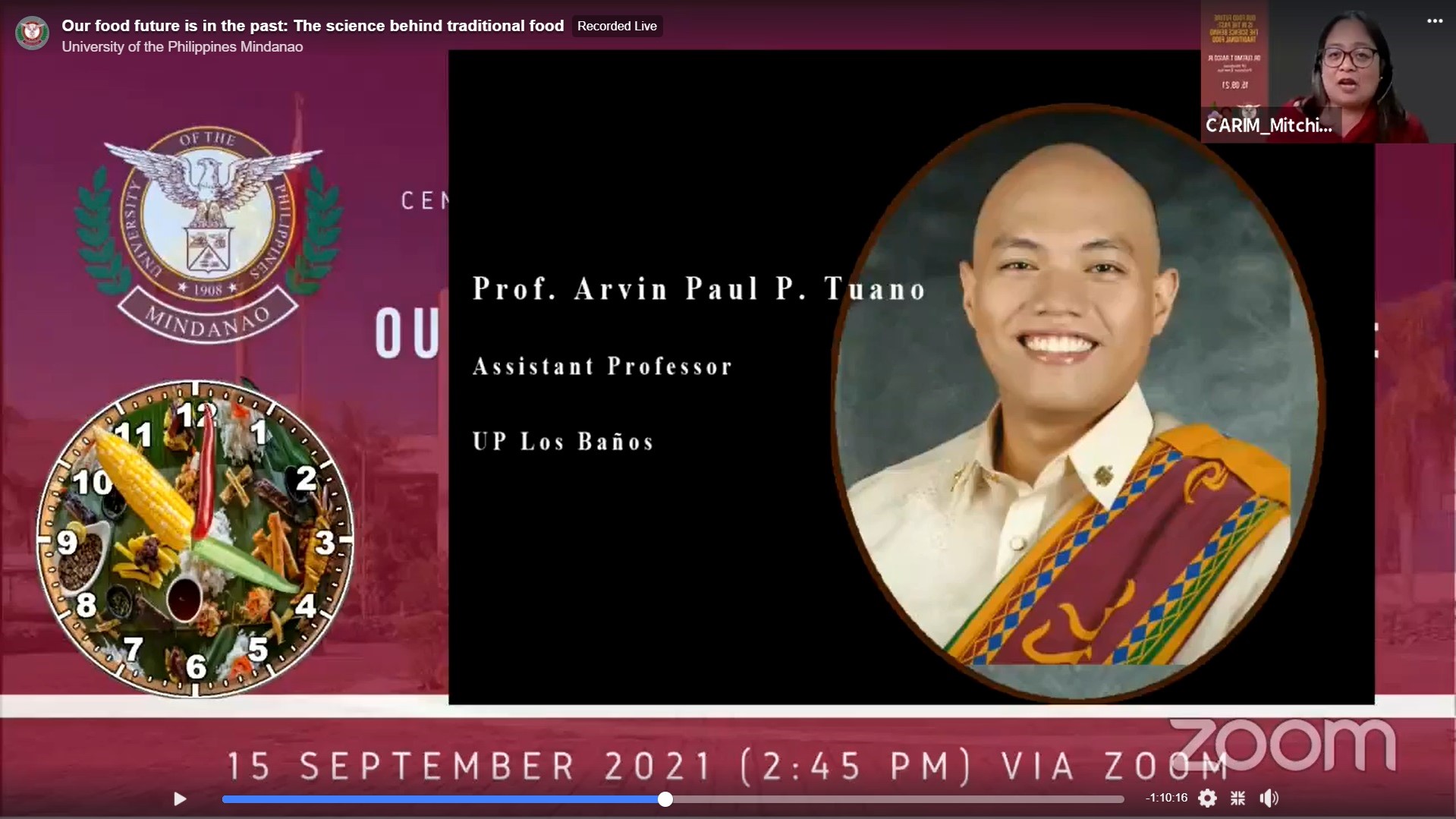 |
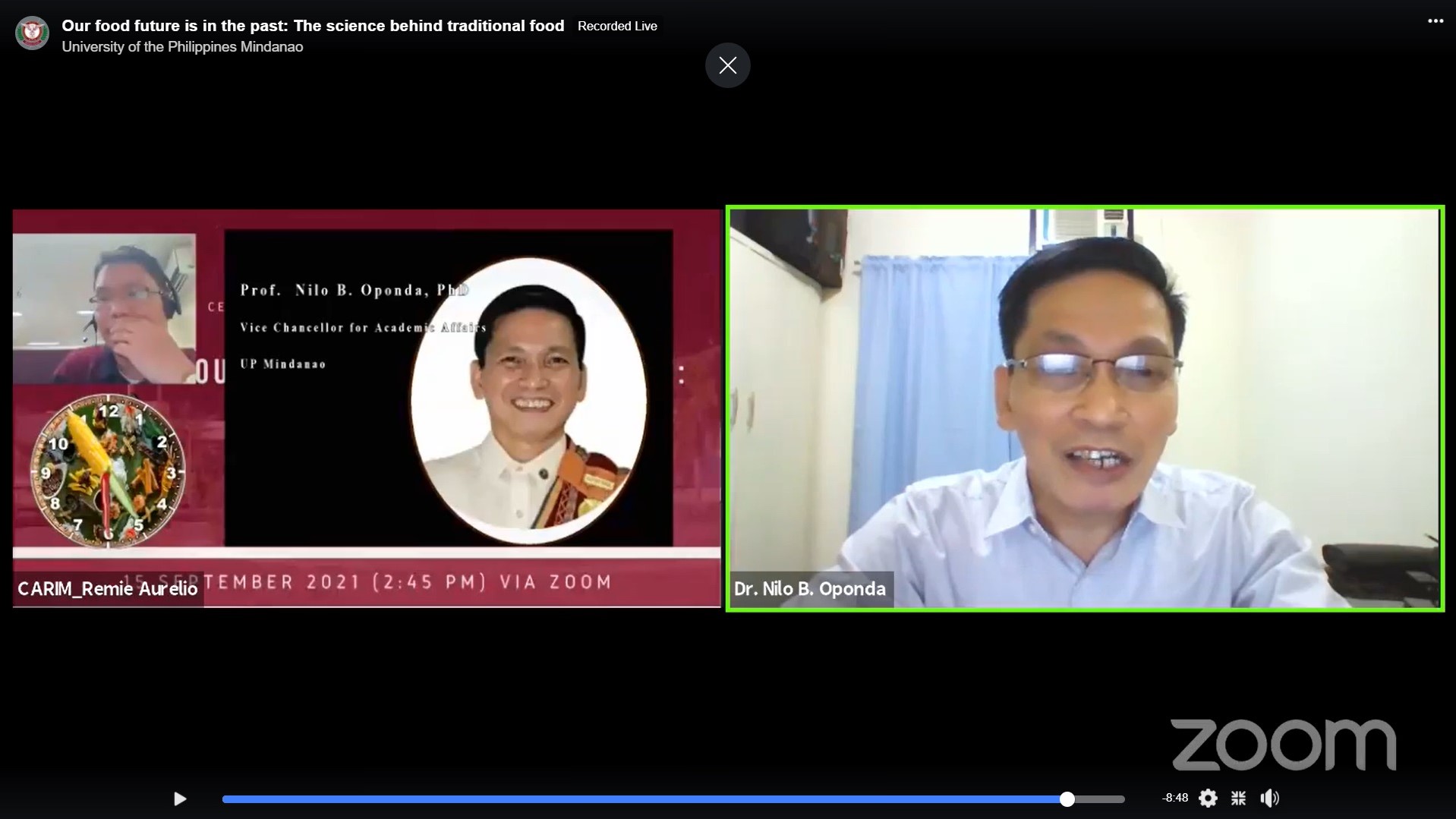 |
Clockwise, from top-left: Reactors Dr. Jose Bacusmo, Dr. Clarissa Juanico, and Asst. Prof. Arvin Paul Tuano; Vice-Chancellor Nilo Oponda gives the Closing Remarks
He ended his presentation by asking for the University of the Philippines Mindanao to lead the re-invigoration and re-invention of the local food cultures in Mindanao. His lecture was then followed up by three panelists, namely: Dr. Jose L. Bacusmo, former president of the Visayas State University; and Prof. Arvin Paul P. Tuana and Dr. Clarissa B. Juanico, both faculty members from the University of the Philippines Los Baños. The panel gave their reactions to the lecture, adding that we should find a way to make traditional food more novel, convenient, and glamorous. They also mentioned that the movement for traditional food has to be a collaborative effort between other fields and sciences, as well as incorporating social media in its push for awareness.
CARIM hosted the lecture through a Zoom call and was attended by faculty members, students, researchers, and government staff from various institutions. A majority of those in attendance were from educational institutions, with 24 different schools and universities represented. Seven government institutions, as well as three private organizations, were also in attendance. A total of 123 people attended the lecture via Zoom. The lecture was also shown as a live broadcast on UP Mindanao’s Facebook page, where it is still available for viewing. An average of 20 viewers were present on Facebook throughout the whole presentation.
Written by: Dave Carl T. Cutler
(The lecture addresses the Sustainable Development Goals on health, hunger, industry, consumption, and other goals)
View the lecture here: https://www.facebook.com/UPMindanao/videos/580015353150085
Lock full review www.8betting.co.uk 888 Bookmaker